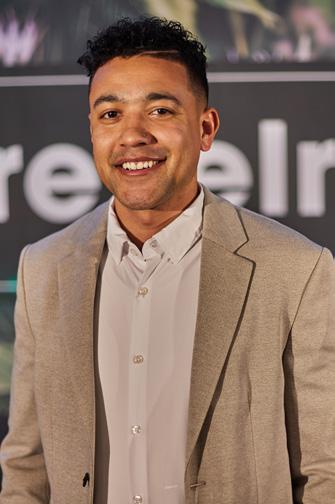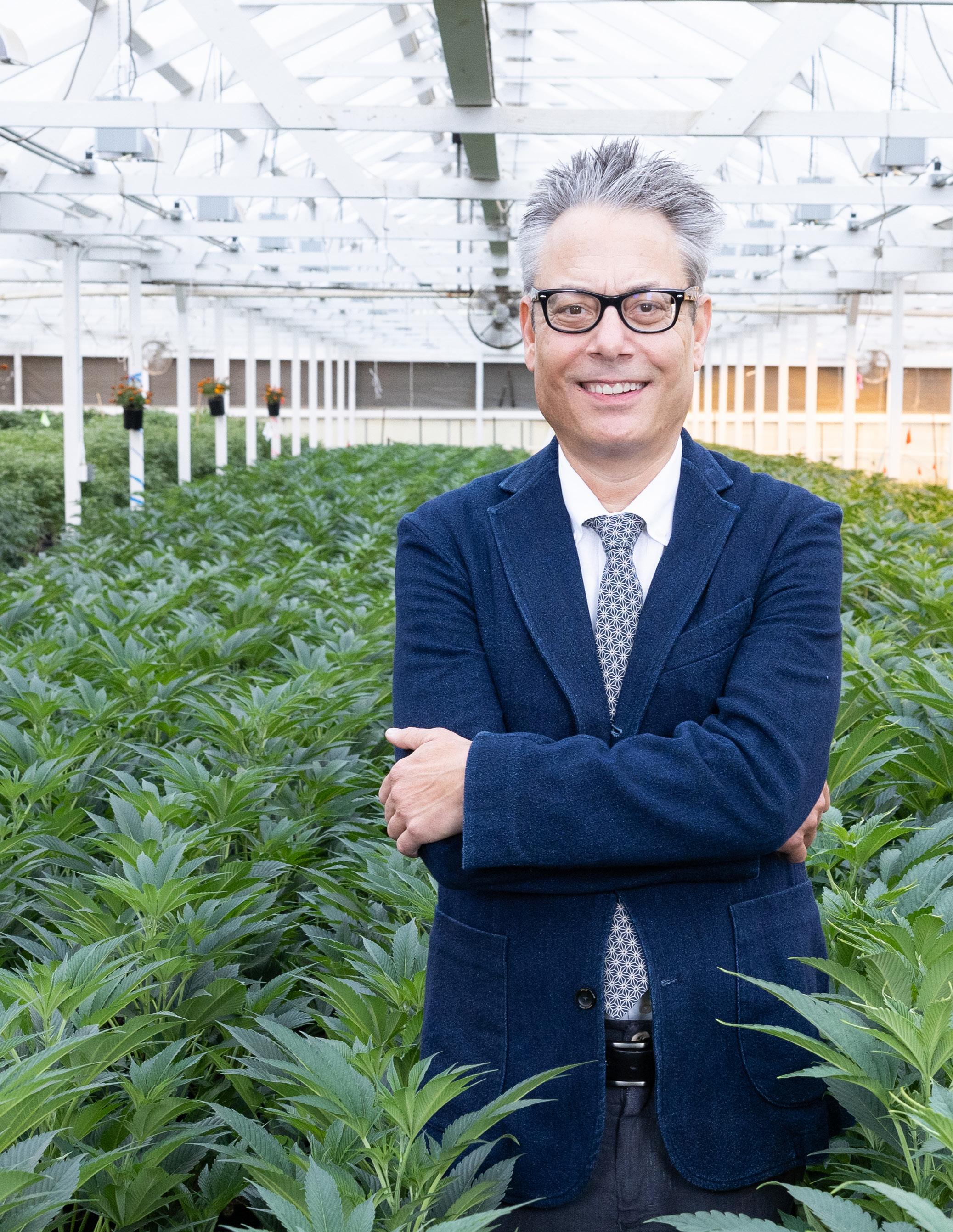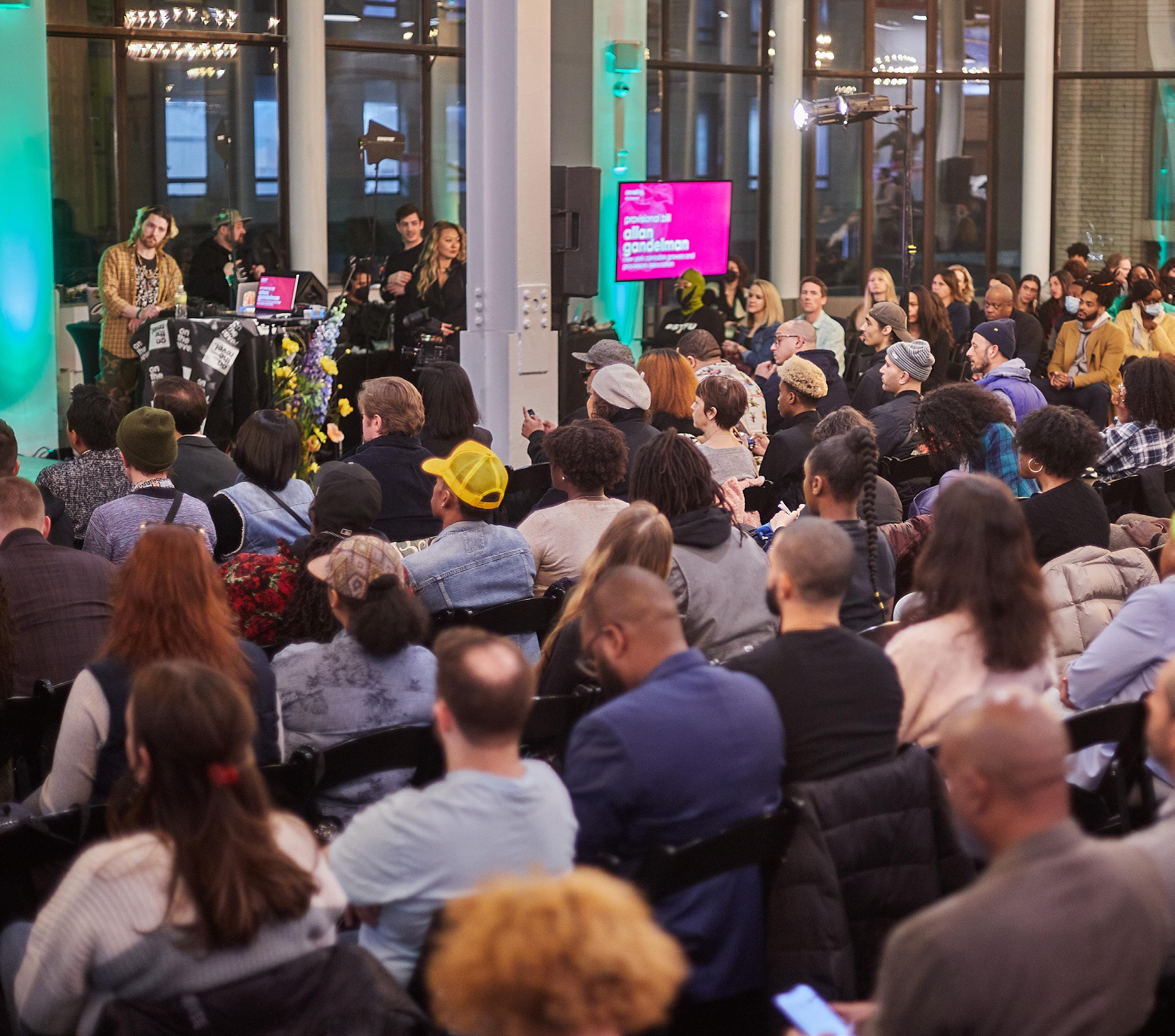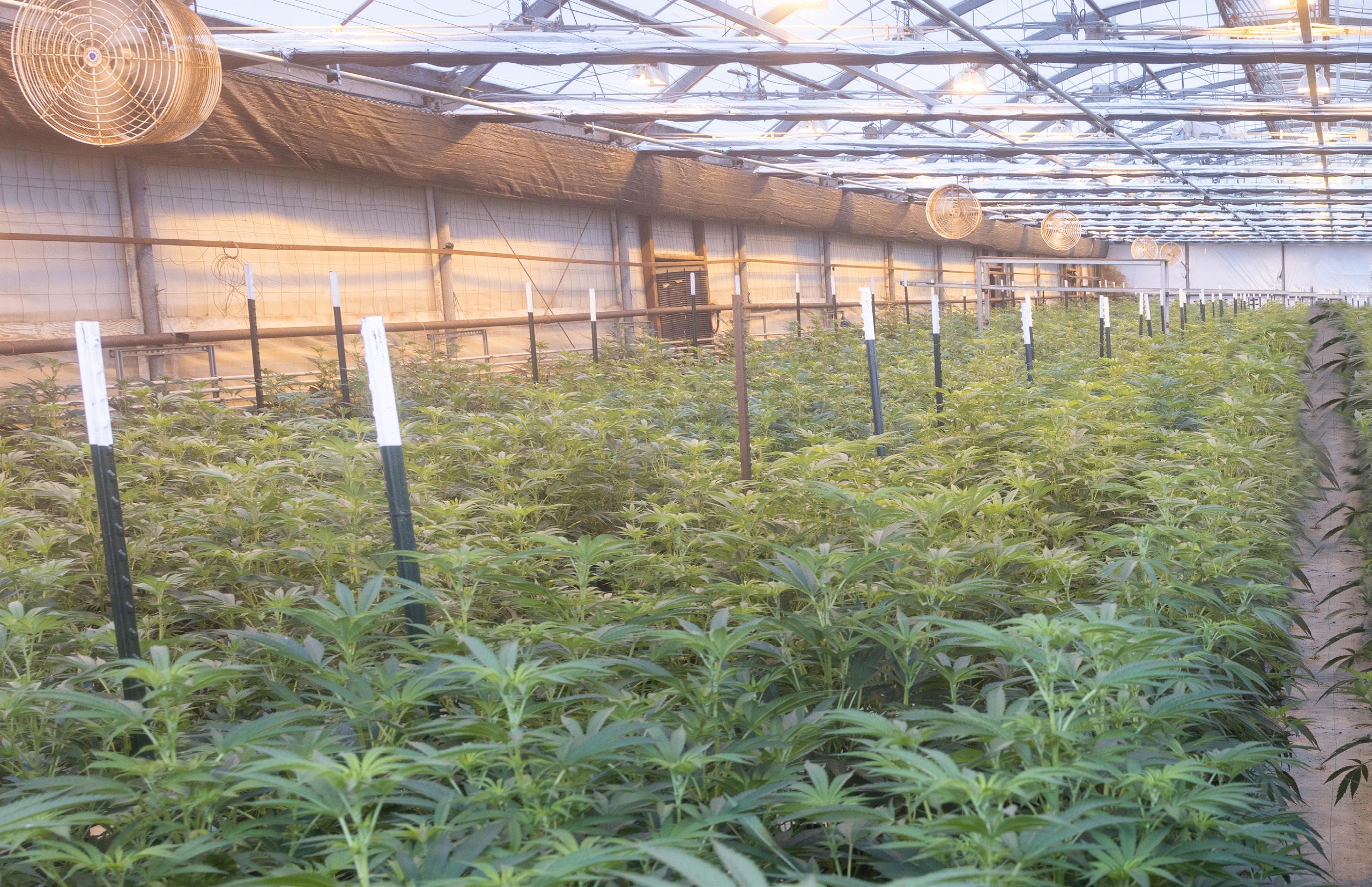Cannabis Inc. Magazine




the business of cannabis

U.S. VETERANS USE HEMP ALTERNATIVES TO OPIOIDS
HEMP CONCRETE REVOLUTIONZING CONSTRUCTION
THE QUEEN OF CULINARY & CANNABIS


Advice and insights from major players. Featuring Jim Belushi, owner of Belushi’s Farm., Andrew DeAngelo co-founder of Harborside Inc., a publicly traded company and current chair of the board of directors for the non-profit, Last Prisoner Project as well as the co-founder of the California Cannabis Industry Association trade organization. Also, featuring Jesce Horton, CEO at Portland-based LOWD™, an award-winning cannabis company that embodies the art of urban craft cultivation.


ERWIN E. KANTOR
CHIEF EXECUTIVE OFFICER & PUBLISHER

JOE INNACE
CO-FOUNDER & PRESIDENT
LUMI SUBASIC MANAGING PARTNER

JUDE SCINTA EDITOR-IN-CHIEF
MICHAEL GORDON MANAGING EDITOR
LUCAS A. RIVERA WRITER-AT-LARGE
JOE INNACE FEATURE WRITTER

HAROLD GONZALES SENIOR WRITER
SEAN ROME
CREATIVE DIRECTOR / DESIGNER CHRIS YATTAW PHOTOGRAPHER
ERIC DANIELS BILLING DIRECTOR
CONTRIBUTORS & GUESTS
LULU TSUI | JACOBI HOLLAND ADNREW DEANGELO | JESCE HORTON
24 CANNABIS MADE FOR YOU
6 Conference Preview: Revelry 14 curating an inclusive cannabis industry

26 Cannaconcrete in construction

30
the queen of culinary & CANNABIS

Andrew DeAngelo The Business of Cannabis

34 cannabis
US Veterans turn to hemp-derived cannabis alternatives


VION Receivable Investments, headquar tered in Atlanta, Georgia, is an international provider of receivable investment ser vices to businesses managing consumer and commercial receivables. VION provides a single , comprehensive source of exper tise in commercial receivable factoring and consumer receivable purchasing, valuations, and process consulting
VION Receivable Investments

400 Interstate North Parkway Suite 800 Atlanta, GA 30339 877.845.5242 phone 678.815.1557 fax
Mesquite Corporate Center 14646 N. Kierland Blvd. Suite 122 Scottsdale, AZ 85254 480.729.6419 phone 866.260.1826 fax
123 North College Avenue Suite 210B Fort Collins, CO 80524 877.845.5242 phone 970.672.8714 fax
11921 Freedom Drive Suite 550 Reston, VA 20190 703.736.8336 phone
VION Advisory Services 18017 Chatsworth Street Suite 28 Granada Hills, CA 91344 818.216.9882 phone 818.891.8738 fax
VION Europa
Paseo de la Castellana 95-15 (Torre Europa) Madrid 28046 Espanha +34 91 418 50 88 phone www.vioneuropa.es

In about two weeks on February 25, between 550750 people will gather in downtown Brooklyn at NYC City Tech College for the 14th Revelry – described as a cannabis conference for the people. The conference is the flagship of curated events produced by On The Revel, an organization that highlights the diverse people who have been and are currently building the cannabis industry.
On The Revel was founded in New York City in 2016 by two cannabis entrepreneurs, Lulu Tsui (pronounced SWAY) and Jacobi Holland. Both had experience in tech and cannabis from western states (Lulu from Washington and California; Jacobi from Colorado). But as residents of New York City they felt that

local events lacked the quality and access to operators that are actually on the ground in other regions.
The two also shared the opinion that other national/ regional events did a very poor job representing the diverse backgrounds and faces that are building the industry. And they wanted to create a business event that captured the good energy and positive vibes of consumer events.
Cannabis Inc Magazine caught up recently with both Jacobi and Lulu in advance of the event.
“We both came from existing legal cannabis markets; I came from the Washington market and
Jacobi came from the Colorado market,” Lulu recalled. “But we were very much bi-coastal and in 2015 we met at a 420 party hosted by Women Grow, and at that time in New York, there were many meetups and conversations around advocacy and investing in cannabis.”
She noted, however, that there was also a lot of false information and misconceptions about what was really happening on the ground in existing legal markets.
green rush, blah, blah, blah. And for some, that was true, but for a lot of the people that we met, that was not the case.”
She added: “We also wanted to highlight the folks that look like us that we met along the way through our business dealings in other markets.”
great about seeding new types of ideas, new types of culture, but it really isn't until New York adopts it, that it becomes a worldwide movement.”
So New York became the epicenter—the cultural influencer with the help of On The Revel— beginning in 2016.
The mission was to focus on creating a community and a diverse network of industry professionals. “It makes for a better industry when it's inclusive and diverse,” Lulu emphasized.
“That’s because you have a collective intelligence that's
“For our first event we knew we wanted it to be a little more elevated than a traditional meetup group that just kind of had pizza and a couple of beers,” Jacobi laughed. “We wanted to take a new approach; So we kind of redesigned what we thought it
“And it was the first time I met someone that was of color who was talking about real truth,” Lulu said of Jacobi, “And we just hit it off.”
Originally called the Cannabis Tech Group, given their aligned skillsets in designing services, products and experiences, that morphed into On The Revel.
“We thought it was really important to share transparent and real information about what the cannabis space is about,” Lulu explained. “At that time you saw all these headlines about billion dollar companies, the so-called
coming together to problem solve from different backgrounds and different experiences and different skill sets,” she said.
As On The Revel began to grow, the decision was made to make it New York-centric.
“We both believed that when New York came online it would be a very influential market that would probably change how the world perceives cannabis,” Lulu said. “I'm from the West Coast, and I always say the West Coast is
should look like.”
Jacobi’s eyes were opened when a woman approached him after the first event. He didn’t know her back then, but she was clearly emotional about the experience.
He recalled: “I now know she was very established in the industry at that point; she’s an attorney and she came up crying and said, ‘You know, I've been working in the industry for X years, I go to so many different
events and conferences, and this was the best thing I've ever been to. This is what New York needed.’”
It was then, after investing some money and a lot of sweat equity that Jacobi turned to Lulu and said, “I think this is a little bigger than we thought it was supposed to be.”
He said it was a pivotal moment for him. He realized that their approach was novel and important to people.
The first event had about 125 people in attendance. That was seven years and 13 events ago. Their most recent event— promoted as a Block Party—had 550 people. This year’s Revelry should surpass that.
Originally, there were four events planned each quarter, but as they kept getting bigger and bigger, they have become less frequent—twice a year. Lulu, Jacobi and their team all have fulltime jobs, so for them it’s a labor of love and passion.


“Revenue is not the driver of why we do this,” said Jacobi. “We’re lucky if we break even. Our goal is to just make sure that people have information and have access to good people. What’s most important is to make a healthy collaborative market for New York.”
Now, every event is defined by three pillars, according to Jacobi. First, everyone is going to feel welcome. “We’ve failed you if you walk in the room and don’t feel welcome,” he said.
The second pillar is curated and actionable content. “The speakers we bring in are mostly local as well as from out of state
that are really well considered. We interview our community in advance about what information they most need,” Jacobi explained.
Lulu elaborated: “When we talk with people in our community, we figure out the questions that they want answered. We don't assume that what we're trying to figure out is what everybody else is trying to figure out.”
These discovery sessions reveal the subjects people want to learn about and then inform the event’s programming. “And then we'll hit up our Rolodex and decide who would be best for speaking about a specific topic?” Lulu noted. “So it's very intimate. Everybody on our stage is probably two degrees of separation from us -- people that we've worked with personally or our trusted folks have worked with.”

“And then the third pillar is you're going to meet more dope people,” he laughed. “It's kind of a cheeky thing to say, but there's actually a lot behind that. You're going to meet people that are genuinely interested in this industry -- they have passion about the industry, it's not just a money grab to them.”
For the upcoming February 25 event and others there will be

three blocks of content.
The first one addresses what it's like to be a licensed operator. The panel and speakers are all licensed or in the process of coming online in New York. “They have already established themselves as an operator and will tell their personal story, while also sharing anything actionable that they wish they had known about before they started,” Lulu explained.
Another block will focus on how applicants need to come up with a community plan, something especially important in New York.

“We're already starting to hear about failed partnerships,” said Lulu. “So this piece is about how to create a conscientious ecosystem—it focuses on partnerships, working with your community boards and essentially how to be a good actor within the community.”
This segment will also focus on licensing deals, as well as how a legacy operator can take a pathway to a legal operation. The third content block will deal with how to raise money. It will feature venture capitalists, banks and lenders who will advise what they are looking for from potential operators.
All in all, Revelry 14 promises to present a very holistic, 360view from a variety of different perspectives.
But the information sharing doesn’t end with the conference. It’s ongoing. One platform that originated during the pandemic when everyone was locked down is On The Revel’s Dope People
Online Community (dope people sign-up — On The Revel).
Free-to-sign up to all, the platform has grown steadily since 2020.
“The event becomes the central hub of information, but that ends,” Jacobi explained. “If you didn't get the business card or you forgot a person's name, or you couldn't find that company again, it's over -- you fade off into oblivion.”
But the creation of the Dope People Online Community allows the interaction to continue.
“We’ve effectively decentralized the information,” Jacobi explained, “We don't want you to wait six months for the next Revel event to learn more information. Here online, people keep talking and it all reverberates.”
At On The Revel, it’s all about creating content and experiences that help democratize the cannabis market.
For more information, visit: On The Revel
“creating a community and a diverse network of industry professionals. It makes for a better industry when it's inclusive and diverse.”
– Lulu tsui




 by joe innace
by joe innace


“The increasing demand for cannabis is likely to propel the entry of new companies in the future, fueled by increasing awareness and acceptance regarding cannabis use for medical purposes,” Nova One Advisor noted in a June 2022 market report.

What’s more, during the most recent U.S. midterm elections, voters in two states—Maryland and Missouri—joined the growing list of other states that have already legalized recreational marijuana. In fact, the list of states where marijuana is illegal is now much shorter than those where
its use is fully legal, or where some mixed use is allowed.
In late November in New York state, the Office of Cannabis Management awarded its first 36 retail licenses for selling recreational pot, with the dispensaries expected to open their doors by December/January. The first licenses were approved for individuals or their relatives with prior marijuana convictions now starting businesses and some nonprofit organizations that serve the incarcerated. With that came a lot of controversy as well as red tape.
The cannabis market in the United States was valued at nearly $11 billion in 2021, according to Cleveland-based Nova One Advisor, and it is expected to reach $40.5 billion by 2030. The market research company estimates that demand for weed will grow at a compound annual growth rate of 14.9% from 2022 to 2030.
For anyone thinking of getting into the cannabis business—whether at the seed or sale stage of the supply chain, or somewhere in between—the bureaucratic maze can be daunting. There is a lot to learn—and knowledgeable advisors can help. A consultant can make the difference

California-based Andrew DeAngelo works as a consultant and strategic advisor to the global cannabis industry. He co-founded Harborside Inc., a publicly traded cannabis company, is the co-founder and current chair of the board of directors for the non-profit, Last Prisoner Project, and the co-founder of the California Cannabis Industry Association trade organization.
In short, DeAngelo is one of the few people to have owned and operated cannabis companies in the legacy, medical, and adult-use markets on both coasts of the United States. As an activist for the last 35 years, Andrew helped legalize medical and adult-use cannabis in California and

“WHERE YOU DECIDE TO START AND OPERATE YOUR BUSINESS IS CRITICAL BECAUSE EVERY STATE HAS A DIFFERENT FRAMEWORK, YOU HAVE TO DO YOUR DUE DILIGENCE.”
ANDREW DEANGELO
Washington, D.C.
He told Advisors Magazine in a recent interview that he collaborates with clients to build their businesses ‘from seed to sale’.
“Where you decide to start and operate your business is critical because every state has a different framework,” he said. “You have to do your due diligence. Because in every state where it’s either legal for medical or adult use, or both, there are different rules of the road.”
DeAngelo emphasized that depending on the state, there are unique tax structures and various other compliance complexities.
“You have to know all of that before you start spending money on building your business,” he said. “And I also recommend that people know something about the history of cannabis, prohibition,

and the product itself. This doesn’t necessarily mean you have to start smoking a bunch of weed, but you should understand what weed does to people and why people are so drawn to it.”

Other than alcohol, DeAngelo says weed is the most popular intoxicant on earth. “Understanding why that is will help you sell more weed,” he laughed.
And whether one decides to grow it, distribute, manufacture, package or sell it—all those supply chain links are people-driven businesses. “Organize your business plan accordingly so that you can attract really good talent, because there are a lot of people who don’t know how to do this,” DeAngelo said.
For the most part, DeAngelo and his group of associated consultants offer soup-to-nuts solutions to
“OTHER THAN ALCOHOL, WEED IS THE MOST POPULAR INTOXICANT ON EARTH.”
ANDREW DEANGELO
aspiring cannabis business owners once they’ve received their license. “That’s our specialty zone right there,” he said, “from the moment you get your license to the opening day ribbon cutting. Now, I can also help you get the license; I do that too. And I also help coach people after they’ve opened their dispensary or their business.”
DeAngelo noted that a license is given to someone who already has other licenses or to a new entrepreneur just getting started. He works with both, and the common denominator is opening the business as quickly as possible.
“The period where you get bogged down the most is the time between getting the license and opening the business,” he explained. “It’s about managing all the external factors that are beyond our control. There are all these inspections you must pass — there’s a local community and the state, and both have different inspection requirements at various times.”
Before an ounce can be sold legally, all the inspections must be passed with flying colors. “And if you don’t pass them, then you are forced to do a whole bunch of corrections and it can be really costly and enormously time consuming,” DeAngelo said. “But I’ve done this so many times that it’s pretty streamlined for us now—that’s my sweet spot.”
From license to startup, a dispensary typically can open in about a year, depending on the state it’s operating in and the specific framework, according to DeAngelo. “If someone is building a cultivation facility, it’s about the same time; a manufacturing facility can probably be up and running in about six months,” he added.
There are auxiliary business
opportunities as well, such as a packaging company, or a PR firm that can be up and running in as quickly as 90 days.
As noted, DeAngelo founded, owned and operated Harborside — a major cannabis company — for nearly 15 years. He led the design and development of gold-standard cannabis retail by innovating many firsts for the industry.

These included introducing CBD medicines to heal severely epileptic children as documented in Discovery Channel’s Weed Wars, implementing the first lab-testing program in the history of cannabis dispensing, creating child-resistant packaging for edibles, standardizing inventory tracking, initiating senior outreach, and successfully preventing the federal government from seizing Harborside in forfeiture actions against the company in 2012. Today Harborside is one of the largest vertically integrated cannabis companies in California.
“The cannabis industry is a lot harder than people think,” DeAngelo said. “Nowadays, I like building things and I like helping people with their own business strategy.”
“THERE REALLY IS A WEALTH OF OPPORTUNITY IF PEOPLE REALLY LOOK, AND LOOK AS DEEPLY AS POSSIBLE, INTO THAT PLACE OF VALUE.”
JESCE HORTONPhoto Credit Jamie Soja / Andrew DeAngelo
His extensive record allows DeAngelo to negotiate substantial consulting contracts that are usually paid monthly and can include a bonus after the business opens.
“I’m not cheap because I’ve been doing this a long time,” DeAngelo smiled. “It’s a little bit more money than maybe some others, but even in the short-term the possible delays I mentioned can cost huge amounts of money.”
He tells clients: “Every day you’re not open while holding a license is costing you money.”
DeAngelo emphasizes that effective branding is as critical as ever across today’s cannabis landscape. “The most successful companies have very strong branding that separates them from the noise,” he said. Celebrity status can also help — and many have gotten into the cannabis trade, leveraging their already-existing brands.
What began with just 48 plants during Oregon’s medical marijuana program in 2015, today Belushi’s Farm encompasses a sprawling and

spiritual 93 acres with 1,800 feet of Rogue River riverfront in Southern Oregon’s Banana Belt where the sun, water and air make the perfect combination to sustain naturally powerful and beautiful cannabis.
Second City and Saturday Night Live alumnus Jim Belushi, also star of the sitcom According to Jim, is the founder of Belushi’s Farm, home to a range of offerings: from Belushi’s Chasing Magic, to The Blues Brothers, to Captain Jack’s Gulzar Afghanica, a rare strain from the Hindu Kush region that became known in the ‘70s as “The

Smell of SNL.”
Growing Belushi, a series on Discovery, is an inside look at Jim’s world and shows the incredible effort it takes to build a legal cannabis operation. Having suffered the loss of his brother John to an overdose and embarking on his own journey — learning and healing through cultivating cannabis — Jim’s an enthusiastic proponent of the plant’s beneficial properties across a spectrum of uses.
“I love the magic of acting on stage, singing in front of an audience with The Blues Brothers,
“I LOVE THE MAGIC OF ACTING ON STAGE, SINGING IN FRONT OF AN AUDIENCE WITH THE BLUES BROTHERS, MOVIES, TELEVISION, DIRECTING AND I ENJOY THE MAGIC OF AGRICULTURE ON BELUSHI’S FARM.”Jim Belushi, Owner of Belushi’s Farm / Photo Credit Tyler Maddox Photo Credit Tyler Maddox — JIM BELUSHI
movies, television, directing,” Belushi told Discovery in advance of the series premiere. “And I enjoy the magic of agriculture on Belushi’s Farm. We always bring forward all our knowledge into each thing we do, so it was natural for me to bring a camera to the farm and discover a show around it,” he added, “a show that will help educate, inform, delight, and heal. It was a natural blend of two different worlds for me.”
When it comes to social activism, the cannabis business community is tightly knit. Belushi, for example, is a strong supporter of the Last Prisoner Project co-founded by brothers Andrew and Steve DeAngelo.

“Steve DeAngelo, Andrew DeAngelo and Mary Bailey are great visionaries, and are the leaders of this organization that aims to release all individuals who are incarcerated for nonviolent cannabis offenses,” Belushi has noted in interviews. “Why? It’s just so obvious that there have been millions of dollars made on the backs of nonviolent cannabis prisoners--they are the pioneers of our industry,” he added.
Recently, one of New York’s state’s first licenses went to a company part-owned by a franchise of Belushi’s Farm. It is operating a dispensary on Northern New York’s Saint Regis (Akwesasne) Mohawk Tribe territory in Franklin County near the U.S.-Canadian border. Belushi’s Farm also has affiliated outlets in Colorado, Oklahoma, Illinois and Massachusetts.

Another actor with a burgeoning cannabis empire is Seth Rogen who, along with writing partner Evan Goldberg and others, offers the Houseplant™ brand of pre-
rolled joints, whole flower cannabis and more. The plant.houseplant.com website has a shop locator — by zip code — which currently lists about 40 outlets in California that carry Houseplant.
Rogen is quick to leverage Twitter to announce Houseplant developments and products to his more than 9.3 million followers. He has also spun off a smoking accessories, ceramics and home goods website displaying an array of items designed by Rogen and crafted to his specifications.
Founded by Rogen, Goldberg, Michael Mohr, James Weaver and Alex McAtee in Toronto in 2019, Houseplant’s growth has been rapid.
“Houseplant is a lifestyle company rooted in cannabis that creates and curates thoughtful design-led and innovative products,” say its owners. “The company unifies the worlds of “House” and “Plant” to offer a top-tier cannabis experience through one-of-a-kind expert insights paired perfectly with well-designed, premium home goods.”
As with Belushi’s Farm, Rogen’s Houseplant also puts much emphasis on social impact. For example, the company offers an in-house mentorship program to assist underinvested-in entrepreneurs build successful and sustainable cannabis industry businesses. Another company program focuses on supplier diversity in order to connect more BIPOC-, women-, LGBTQ-, disability- and veteran-owned businesses to the Houseplant ecosystem. Fact is, cannabis-related businesses have been an attractive investment for a sizeable number of celebrities ranging from ones you might expect (Snoop Dogg and Willie Nelson) to some that might surprise (Gwyneth Paltrow and Martha Stewart).


As with almost any other business, new players in the cannabis arena should consider where they can add the most value. That’s a key point made by Jesce Horton, CEO at Portland-based LOWD™, an award-winning cannabis company that embodies the art of urban craft cultivation.
“First and foremost, find a place where you can truly add value to the market,” Horton told Advisors Magazine in a recent interview. “There are so many new solutions, so many services, so many products that are needed by consumers from other related businesses,” he added, “There really is a wealth of opportunity if people really look and look as deeply
 LOWD™ Company Team / Photo Credit Sam Gehrke
Jesce Horton, CEO of LOWD™ / Photo Credit Sam Gehrke
LOWD™ Company Team / Photo Credit Sam Gehrke
Jesce Horton, CEO of LOWD™ / Photo Credit Sam Gehrke
as possible into that place of value.”

For example, Horton recently entered an exclusive partnership with owtlet.com (971-Dat-Plug), an Uber Eats- or DoorDash-like service that provides on-demand delivery of LOWD products.


“I think this delivery model is certainly an innovation in the industry,” Horton said. “We’ve opened up our curing room to Owtlet™ for them to make on-demand deliveries directly from our precision, temperature-controlled curing room, which guarantees that customers get the freshest flower and most premium buds directly from us.”
Horton has built his multi-million-dollar business for the premium market. By employing innovative processes aimed at peak plant performance, he says that LOWD’s flower is aimed at impressing even the most discerning of smokers.
The company prides itself on taking superior quality to another level. For instance, its Smoke Like A Grower a/k/a SLAG jars, contain intentionally selected buds that are stick trimmed straight into LOWD’s one-ounce, half-ounce, and quarter-ounce collectible, ultraviolet resistant glass, providing the best slow cure. LOWD fans are literally the first to ever touch these buds.

Horton’s background is in engineering and energy management. Such expertise has allowed him to refine LOWD’s systems and processes and align them with the company’s premium craft ethos. Environmental controls, curing, trimming, and packaging processes all synergize to maximize freshness, shelf appeal and customer satisfaction.
More recently, Horton has delved into the consulting and advice world. He has also developed curriculum and is instructing at the first college in
New York (LIM College) to offer a cannabis business major, as well as doing similar work at HBCU Medgar Evers College.
“We have a growing list of clients across the U.S.,” Horton said. “We’re working with them actively to build their facilities, design their standards, implement operating practices and help hire talent.”
“As a consultant, I’m able to find a lot of opportunities for these clients—not just in building their facilities,” Horton explained. “I’ll serve as an interface between the architects, the engineers, construction, the permitting and regulatory steps that are required,” he added, “and I’ll also help to develop cultivation processes and facilities that can allow them to produce premium cannabis at lower costs.”
For now, LOWD cannabis products are available only in Oregon. Horton said, however, that through his consulting work some licensing deals are in the works that could bring LOWD to a few east coast states in 2023.
Current legal sales of cannabis are projected to be $29.3 billion by 2022, according to Portland-based Whitney Economics and are forecasted to be $81.6 billion by 2030.
“There will be more legal supply than illicit cannabis supply in the U.S. beginning in 2026,” according to the now-available 2022 Whitney Economics U.S. Cannabis Supply Report.
The firm has calculated the total cultivated output of cannabis in the United States in 2022 to be in excess of 48.8 million pounds — including both legal and illicit cannabis supply for all delivery methods, such as flower, edibles, concentrates, and more.

In a world of fast food and one-size-fits-all sensibilities, how often does something feel made especially for you? The "Made for You" section celebrates those items that are created with such high quality of hand workmanship and degree of customization that they become individual to you. In each issue, our editors will endeavor to bring you special things from anywhere on the globe, choosing them solely on the basis of outstanding quality. Our goal is to give you guidance on the best of everything.
Rebel Coast started producing traditional wine in 2012, and then revolutionized the cannabis industry in 2017 with the introduction of a sauvignon blanc cannabis-infused beverage, offering a delicious, lowcalorie alcohol alternative to a new generation of consumers. Born and bred in California, our beverages are designed for the rebellious spirit to celebrate the best moments in life. REBEL COAST

Made with the purest CBD isolate, our CBD gummy worms are a treat for your taste buds. Our CBD gummy worms are a delicious option for anybody looking for a better-tasting alternative to other CBD products. They’re covered in a mixture of sweet and sour sugar crystals, so they’re guaranteed to please any fans of sour candy out there. Every container contains 30 individual worms, with each one packing 10mg of CBD. PINGUIN CBD

Enjoy full flower and potent concentrate sessions from one device. Plus, use the included oven lids to adjust your bowl size depending on the session. The ultimate dual-use, portable vaporizer. PAX Plus brings the best out of your flower and concentrates in smooth sessions without any harsh smoke. Includes: Flat & Raised Mouthpieces, Standard & Half-Pack Oven Lids, Concentrate Insert, Multi-Tool, Maintenance Kit, Charge Cable. PAX PLUS

Discreetly nestled in a lush and serenely secluded fishing village in Little Bay, Coral Cove Wellness Resort is a restful sanctum offering a reimagined approach to holistic wellness and healing that will elevate your island getaway experience in Jamaica. Located only steps away from the ocean, fall asleep to the sound of crashing waves in our custom-designed oceanfront rooms and elegantly rustic cottages. CORAL COVE WELLNESS

In 1964, the 250 GTO won the Tour de France Automobile – marking the ninth year in a row that Ferrari won that race. Only 36 of these cars were made between 1962 and 1963; the specific Ferrari that’s the most expensive in the world, at an unbelievable $70,000,000 price point, was victorious not only in the Tour de France, but it also placed in the Le Mans. www.ferrari.com/en-US

E4P Cannabis Cigars are slow burning and made completely of the cannabis plant. No fillers, No short cuts. From start to finish our cigars provide a smooth clean burn. Focusing on small batch releases with exclusive growers and extractors. Our team of dedicated artists who understand the art of the business. Handcrafted cigars may vary in size depending on strain selection. E4P CANNABIS CIAGRS


It has become almost a cliché to discuss the benefits of hemp, the supposed wonder plant with almost endless uses — from woven fibers to edible seeds to bioplastics.
“Of course, hemp is that magic crop that does everything,” says Nicholas Carter, an environmental researcher who, along with Tushar Mehta, a Toronto-based doctor, runs the website Plant Based Data. His work involves reading through
scientific papers and studies and summarizing the most important work supporting plants as a source of food and other important uses. Given the hype, Carter wondered just how much power hemp really had.
“I wanted to see the research out there on it, to see what’s actually real, what’s actually backed by evidence,” he says. Magic? Not exactly. But Carter came away from his attempted debunking a hemp believer. And one of the most promising
of its many uses, he found, is its application as a building material known as hempcrete. Like its namesake concrete, hempcrete is a material mixed with a binder that hardens it into a solid in the form of blocks and panels. Made from the dried woody core of hemp stalks and a lime-based binder, hempcrete can be cast just like concrete. But unlike concrete and its binding cement, which accounts for about 8% of human-generated carbon

dioxide emissions annually, hempcrete actually sequesters CO2. According to a recent study, hempcrete can sequester 307 kilograms of CO2 per cubic meter (19 pounds per cubic foot), roughly the equivalent of the annual carbon emissions of three refrigerators
“While we’re growing it and building hempcrete, it’s sucking CO2 the whole time and encapsulating the CO2 in the structure,” says Eric McKee, founder of the U.S. Hemp
Building Association. S.R. Karade, senior principal scientist of the Central Building Research Institute in Roorkee, India, outside New Delhi, has been studying hempcrete and wrote in a recent paper for the Journal of Cleaner Production about how hempcrete performs as a building material in terms of insulation, durability, structural strength and acoustic control, among other criteria. Overall, Karade found, hempcrete meets the current
standards of most building applications and in many cases outperforms materials currently used, particularly for insulation.
Hempcrete is not a direct replacement of concrete, Karade cautions. In the lab he’s been able to make hempcrete with a compressive strength of 3 megapascals (MPa). “Typical concrete blocks, used for making walls, have compressive strength values varying between 5 MPa and 20 MPa,” he wrote in an email. “Due to its poor

mechanical strength, it cannot be sufficiently relied upon to undertake any structural loads. However, considering its impressive functional properties, in terms of thermal resistance and [moisture-absorbing] behavior, hemp concrete may be at the top spot in the list of walling materials in the future.”
In other words, it can’t supply the load-bearing structure of a building, but it can insulate and cover its walls.
That’s part of what makes hempcrete such a potentially transformative building material, says Steve Allin, director of the International Hemp Building Association. Not only can
hempcrete itself sequester carbon, but its use can help reduce the production of more CO2. “What’s really important about this material is we can create new structures or we can update or retrofit existing structures so that they don’t need air conditioning,” Allin says.
As Karade notes, hempcrete has a high thermal capacity compared with concrete, making it good for both the structure of a wall and its insulation.
Hempcrete can also cut down on another big problem: construction waste. Concrete represents more than half of the debris generated by building
construction and demolition. The U.S. Environmental Protection Agency estimates that more than 23 million tons (more than 20 million metric tons) of concrete debris was created during construction in 2015. And while hempcrete can’t be used for structural sections of a building, it can be used to replace nonstructural elements of walls that traditionally could use concrete. Hempcrete can also be used in place of common construction materials like drywall and plaster, which account for about 8% of building construction debris
Allin says builders are beginning to see value in hempcrete. Buildings have

“Hempcrete,” made from the woody core of hemp, is showing promise as an environmentally friendly building material.
been built or renovated with hempcrete in France, the U.K., Belgium, Ireland, the Netherlands, Italy and Australia He says the British Science Museum Group’s artifacts storage facility used hempcrete, as have public housing towers and even renovations on stone buildings hundreds of years old.
The challenge, he says, is availability. There are only about a dozen hemp processing plants that are able to process hemp into a form usable in the creation of hempcrete, and most are in Europe, according to Allin. “That’s really the logjam,” he says. “What we really need is investment in primary

processing. And that investment needs to be on the longer term, rather than people expecting quick returns and thinking of it as some other standard quick buck.”
Karade notes that the other major challenge is the legality of growing hemp, which can be hard to distinguish from marijuana plants. “The commercial off-take of hemp concrete is still limited by the regulatory constraints of hemp cultivation,” Karade says.
But laws are beginning to change. In the U.S., the 2018 Farm Bill allows for the broad cultivation of “industrial hemp,” but with tight restrictions
on grower licenses and the crop’s psychoactive content, tetrahydrocannabinol, or THC.
Allin hopes this will lead to more farmers producing hemp crops and entrepreneurs seeing the opportunity to build the processing plants necessary to turn that hemp into building products. He says builders are willing to use hemp in their projects, but the products have to be available, which relies on the processing, which relies on the farmers. “Once those things are in place, it will all become profitable,” Allin says. “In a way we’re talking about starting an industry from the ground up.”
“ITS IMPRESSIVE FUNCTIONAL PROPERTIES , IN TERMS OF THERMAL RESISTANCE AND BEHAVIOR, HEMP CONCRETE MAYBE AT THE TOP SPOT .”©Monkey Business Images | Dreamstime.com S.R. Karade
Long before cannabis became legal anywhere, many people in the United States and around the world were baking cannabis-infused brownies and cookies, sampling THC candies, or using CBD oils to alleviate aches and pains. Imagine if there was someone who was a triple threat—someone from the healthcare field who was a chef, and also had first-hand experience as a medical marijuana patient. There is.
Meet California-based Tamara Anderson, founder of Culinary & Cannabis, an all-sensory interactive cannabis event production company formed eight

years ago. When she’s not doing hero’s work as a registered nurse at a hospital, she oversees daily operations and the growth for the company, which includes online content, marketing, and brand partnerships.
As a pastry chef and MMJ patient herself, she progressively and knowledgeably understands the complex intersection of medical cannabis and traditional healthcare. Her mission is to help educate others on total plant use by providing unique experiences for learning and education.
Cannabis Inc Magazine recently caught up with Tamara during her hospital shift’s lunch break. Humble but passionate, friendly, knowledgeable
She’s a nurse, a chef and a patient—but so much morePhoto Credit Emily Eizen
and driven are just some of the adjectives that begin to describe this queen of culinary cannabis (our royalty designation, not hers).
On being that triple threat, she smiled: “I get to use everything that I have done prior in my lives in running this company. Everything I’ve done before has definitely led me to where I am now. It makes my perspective and how I produce stuff a little bit different just because of the background that I have.”

As a registered nurse, Tamara notes that she has always been on the more holistic side. It just always made sense to her to use something natural first to resolve or cure an ailment.
“Even before discovering all of the benefits of the plant, I always was recommending, ‘If you have a cough, take ginger,’” she said. “You know, try these things first before you need something that you have to take for a long time, because a lot of those pharmaceuticals have other side effects.”
What’s more, Tamara said she has always been the baker in the family. “I don’t consider myself a Type-A personality—except when it comes to baking,” she laughed. And her medical knowledge allows for calculating proper infusion dosages.
A number of culinary cannabis creations are found on the website (https://www.culinaryandcannabis. com), and Tamara says she has several partners who have been with her almost from the start.

“Our lead chef that we work with is Chef Matt,” she said. “He came to me, maybe I was a year in business, and he said, ‘I need some help on dosage and calculation.’”
Even though Chef Matt had been infusing for a long time—since his teen years—he found it was difficult finding reliable information on infusion dosages. “So, I just gave him some information and guidance, and recommendations of where to learn more,” Tamara recalled. “He followed through and about a year later he came back with a whole line of products.”
She added: “After 12 months, he had developed a hot sauce, soy sauce, ranch, ketchup, mustard, you
name it. And since then he’s been my lead chef.”
Culinary & Cannabis now has partners far and wide. “We want partners like that—people that we either grow with or watch grow are very valuable. And now, I work with chefs here. I work with chefs in New York, Florida, Seattle and elsewhere.”


Virtually anywhere that someone might be looking to do something in the culinary space, Tamara can provide proper guidance. “If they want a dinner, if they want a class, if they want a party experience, we can provide all of those things,” she said.
In addition to working with many chefs directly, Tamara also works with a lot of topical brands and many organizations that want to launch events. “For example, this year we’re working with the California DCC—the Department of Cannabis Control—to introduce our audience to them because they definitely have that stigma of being the ‘cannabis police.’”
In fact, Tamara emphasizes that one of the primary goals of Culinary & Cannabis Events is “to refute the stigma associated with medical marijuana treatment by exploring its many delicious culinary possibilities.” Through Culinary & Cannabis Events, Tamara brings together healthcare professionals, advocacy groups, and food & wine experts within the community for a great cause.
The events may involve online modules and social media engagement, in-person classes, culinary, and wellness spa functions.
This year, Tamara is amped up about the recent launch of the company’s CannaSpa Parties.
“This is like a spa party at home, but with the plant,” she said. “We’ve been doing our CannaSpa events for seven years, but now we’re offering the services to people to have in the comfort of their own home.”
The CannaSpa Parties at home, for instance, can include an on-site package for bachelorette (or bachelor) parties, turning-21 birthday parties, and other special occasions.
“We will come create a spa party package and bring it to you with infused massages, facials, and more,” Tamara said. “There will be goody bags, maybe rolling classes, and we can have meditation, yoga, ‘paint and puff’ experiences; All those things for you and your friends – for
both women and men.”
Also coming this summer: CannaSpa tours in Los Angeles and New York. “These road trips will be all about wellness,” Tamara said. “And for New York City the focus will be on Hip-Hop because 2023 marks the music genre’s 50th anniversary celebration. “And I can’t wait to tell who’s going to be there!”

It’s fitting that the queen at the intersection of culinary and cannabis makes so many others feel like royalty. She relishes making people comfortable with working with cannabis and its myriad wellness applications. Tamara’s consulting work and other Culinary & Cannabis engagements (like Canna Cool Lounge and Harrington Wellness) may be headquartered in Southern California, but demand is rapidly growing across North America, the UK, Australia, and Asia.
For more information, visit: www.culinaryandcannabis.com and www.cannaspaparty.com


Veterans are frequently underserved or abandoned while facing opioid addiction, post-traumatic stress disorder (PTSD), homelessness, physical disability and other issues. Too often many veterans turn to opioids for relief or selfmedication with other drugs or alcohol.

Dave Walden, a veteran injured in combat who served two tours in Iraq, became addicted
to opioids to help ease back pain and PTSD, until he came across hemp-derived Delta-8 products. “I know how much these products help me, and they need to be readily available to anyone who needs them,” says Walden, who testified last year on behalf of Hometown Hero CBD, which helped the Texasbased cannabusiness win a court injunction to keep these products on the shelves in their home state.
Walden’s challenges are shared
by many fellow veterans, who have been heavily impacted by the opioid crises.
A study published in the July Annals of Medicine reported drug overdose mortality rates among U.S. military veterans increased by 53% from 2010 to 2019. Among Afghanistan and Iraq war veterans, 63% diagnosed with substance abuse disorders also met PTSD criteria, according to the National Institute on Drug Abuse.
Rather than rely on addictive drugs, thousands of veterans like Walden turn to hemp-derived CBD products to seek relief from pain, depression and other challenges.
CBD, or cannabidiol, is a nonpsychoactive component
of hemp. Hemp is defined as any part of the cannabis sativa plant with no more than 0.3% of tetrahydrocannabinol (THC), the psychoactive compound in marijuana.
A known antioxidant, antiinflammatory and analgesic, CBD has been shown to help ease chronic pain. There have also been studies that indicate CBD oil and other CBD products may help reduce depression. Veterans are among the millions benefitting from hemp-derived cannabinoids.
Hometown Hero CBD is helping to fill that demand with a variety of hemp-derived THC and cannabidiol-based products geared for every consumer, from soccer moms and corporate executives to cannabis enthusiasts and service professionals.
The Agriculture Improvement Act of 2018, otherwise known as the Farm Bill, laid the groundwork for the introduction of hempderived products nationwide. The law removed hemp from the Drug Enforcement Administration list of controlled substances, legalizing it nationally.
Jody McGuinness, executive director of the Hemp Industries Association, says it’s vital to keep the Farm Bill intact. “Unlike most other crops, hemp is entirely unsubsidized, so it’s essential that hemp farmers can rely on stability in the marketplace,” he says. “What hemp needs from the next Farm Bill is long-term investments in the infrastructure that exists to support all of our agricultural commodities.”
Founded in 2015 by U.S. Coast Guard veteran Lukas Gilkey and Lewis Hamer, Hometown Hero CBD donates a portion of proceeds from every product sold to nonprofits that help veterans in need. It recently gave $10,000 to VFW Post 10427 in Leander, Texas, for necessary infrastructure

repairs and to raise awareness and support for veterans across the state.
Last year the company donated over $100,000 to veteran causes and organizations.

Mitch Fuller, national and state legislative chairman for the Texas VFW, says one of the top priorities of his organization is to ensure hemp-derived CBD products remain legal and accessible to veterans, their families and other caregivers.
“They are effective and affordable and save lives and help thousands of veterans,” he adds. Hometown Hero is committed to fostering and supporting the continued success of the hemp industry.
“Hometown Hero CBD has been an industry advocate, advancing the availability of hemp-derived products,” says Gilkey, who was attached to a counter-narcotics unit with the U.S. Coast Guard. “It is vital that these products remain on the market for veterans like Dave Walden, and the millions of other adults who deserve the option to continue safely using hempderived cannabinoids.”
